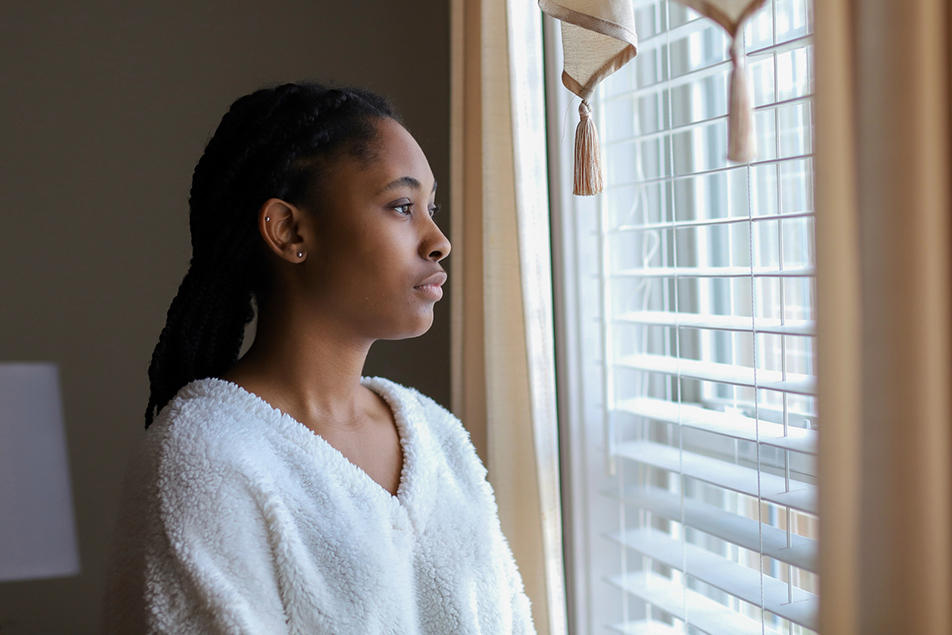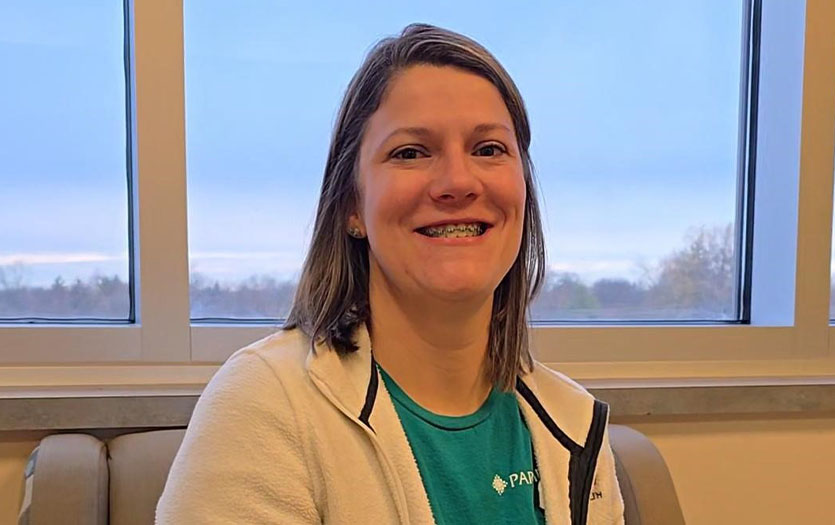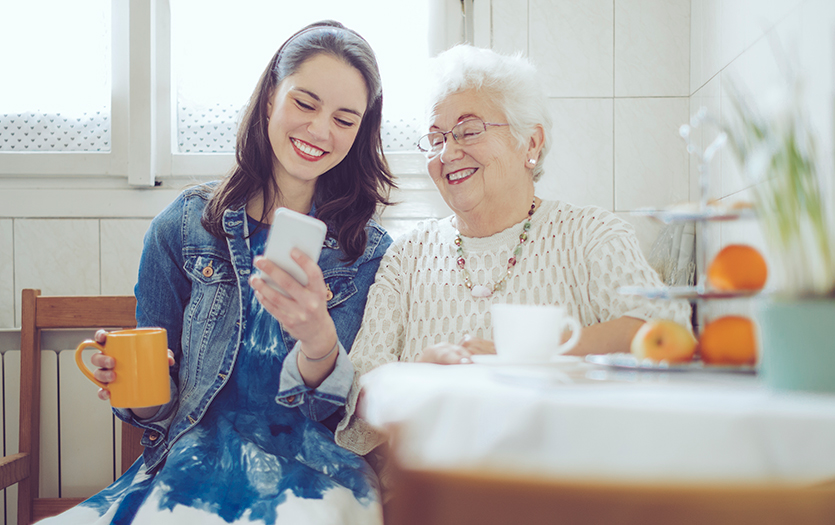
This post was written by Charity Smith, PhD, Post-doctoral Psychologist, Park Center, an affiliate of Parkview Behavioral Health Institute.
As we face the daily challenges of COVID-19, we’re filled with a myriad of emotions—some easily named, while others feel more elusive. Along with feelings of depression and anxiety, the angst, uncertainty, emptiness and confusion we feel is, most certainly, grief — and it is a full-body experience. It can manifest as fatigue, inattentiveness, low motivation, sadness, fearfulness, anger and disconnection, all of which are very much a part of trying to cope with an ever-changing world during this global pandemic.
Grief and mourning, though often used synonymously, differ in meaning. Grief is our initial reaction, while mourning is the active and engaged process of moving forward. When we talk about experiences of grief and mourning, we typically center the conversation around the deaths of loved ones or significant losses, such as divorce or children leaving the nest. Rarely do we talk about the weight of grief or the journey through mourning as a day-to-day experience, wherein we struggle to even put our finger on the nature of our loss. In a time of COVID-19, we are tasked with doing both. In the chaos of daily upheaval, we are grieving the loss of our typical routine, long-held goals and autonomy. We grieve proms, graduations, weddings and funerals; normalcy, safety, security; and beloved friends and family members who are dying at a distance. All of this occurs within us as we work to adapt to the list of changes we face.
Role loss, mourning ourselves, and redefining normal
Throughout our lifetime, we define a portion of our identity based upon the roles we fill and the responsibilities we hold, be that as a parent, friend, employee, student or other titles we carry. With stay-at-home mandates, and other pandemic-related safety protocols in place, many of us are struggling with dramatic changes to our roles, leaving us to push forward each day, as we mourn our understanding of ourselves, our world and our place within it. Those suddenly out of work are struggling with loss of income, alongside the confusion inherent to no longer holding the title of “worker” or “breadwinner”; parents are struggling to redefine themselves as teachers, while also working from home; and students, now learning online, are grappling to understand their identity in the absence of classrooms, contact with teachers and time spent with peers.
It will be some time before we return to our day-to-day routines, which makes it all the more important to find and forge some semblance of structure amid all of these changes. Creating a schedule, even if followed loosely, helps us find balance and meaning in our daily tasks, while also allowing us to build space for self-care and self-compassion. It’s also imperative that we allow ourselves “COVID-free time,” away from screens, social media feeds, and other news outlets. Unplugging from stories of despair helps us to tune back into our own needs, including tending to our grief.
Anticipatory grief, disenfranchised grief and the importance of compassion
Anticipatory grief, in simpler times, is how we try to prepare ourselves for an impending death—a piecemeal approach to coping with the losses we face in the moment, ahead of the larger grief that looms. Our instinct is to steel ourselves against these changes to the best of our ability, and in death, when there’s a reasonably foreseeable trajectory, we can. During this pandemic, we don’t readily know how to grieve our losses piecemeal. Changes are occurring daily, making it difficult to anticipate what we may lose next. We’re in a collective holding pattern, wondering: “How long until I get to see my grandkids again?” or “Will the store still be open tomorrow?” and even “Is tomorrow the day I lose my job?” It’s important to give ourselves permission to ask our questions and voice our fears, while also working to accept that some answers are out of our control.
Disenfranchised grief occurs in response to any mode of death we cannot publicly mourn, either based on our relationship to the decedent, the mode of death or other cultural/societal factors that make our grief taboo or difficult for others to face or understand. Certainly, with COVID-19, we are all experiencing disenfranchised grief as we struggle to identify our current experiences as events we feel we are “allowed” to mourn. We often relegate ourselves to the role of disenfranchised griever, comparing away our suffering, with phrases such as: “Well, at least I’m not in Italy—those people are really struggling.” It’s true, people in Italy are suffering through a significant number of deaths and our hearts break for them, just as our hearts break for those in New York, Detroit, Louisiana and our own backyards.
Indeed, it feels strange to turn to a friend and say, “I’m grieving the loss of my routine,” or “I’m mourning going to the gym,” because these things can feel trite in the grand scheme of a global pandemic. In fact, they aren’t trite at all—they are genuine parts of our individual and collective human experience and they are a genuine cause for grief. Pain is not comparable; we are allowed to grieve our own losses. Just as we recognize and allow others their pain with heartfelt compassion, it is important we give that same degree of care, empathy, and understanding to ourselves. There is no playbook, there is no “supposed to,” and, while we can hold hope, we can also let go of expectation, for ourselves and others.
The nature of grief
I’ll close this with a poem I recently found that I wrote years ago, long before COVID-19 made its appearance on the global stage and “pandemic” became a household word. That it still feels fitting, even in this moment, speaks to the global nature of our grief:
Good Grief
We grieve that which we perceive and misperceive; that which we fear and that which we cling to; that which we love and that which brings us harm. –Every change a loss, no matter how great the gain—and still, we grieve.
We grieve babies—grown and ungrown; youth—ours and others; the aged, and our elders. We grieve for those we have never known and for those who knew us before we ever were.
We grieve the near-misses, the dodged-bullets, the what-ifs, the shouldn't-have-beens, the wouldn't-have beens, the "I-know-betters," and the fateful outcomes. We grieve almosts. We grieve maybes. We grieve that which we deny, even to ourselves.
And from this, we grow. We grow in the spaces left behind—in the possibilities left unfulfilled, left open, offered up, handed over, and passed down. We rise from the soil where the dust settles.
We change. We move forward. And we grieve.



